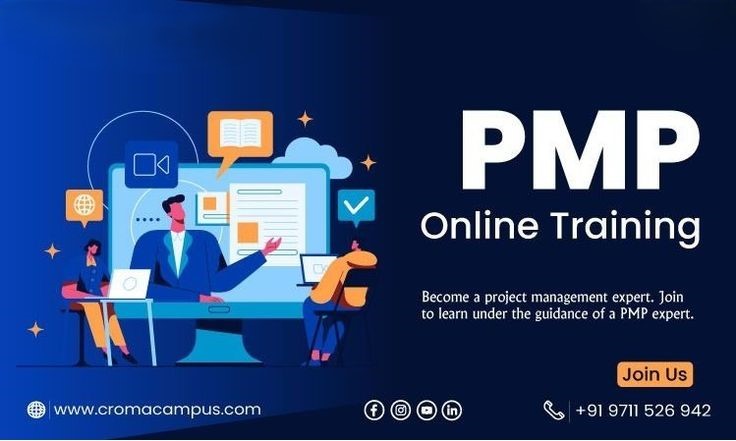Nowadays, the importance of a Project management certificate has grown. It is offered by the Project Management Institute, which is one of the most in-demand degrees in the job world. It is especially created for professionals who are looking to prove they can lead as well as manage projects successfully across any industry.
To gain this certification, one needs to understand the three main focus areas of this. So if you are one of them and looking to become a project manager, then taking the PMP Online Training can help you in this. For the beginners, who are looking to learn at their own pace can apply for the course and get the complete knowledge for the same. So let’s begin discussing the focus areas of the PMP certification:
Three Focus Areas of the PMP Certification:
Here, we have discussed the three major areas of the PMP Certification. So if you take the PMP Course in Delhi, it can help you gain the required knowledge to focus on these areas and create the strategies accordingly:
1. People (42% of the Exam)
Project management is all about people, tasks, and timelines. One should know that the PMP exam mainly focuses on how you lead the team, deal with conflicts, and keep everyone moving in the same direction. This is less about theory and more about real-world skills. This includes how to manage the different personalities, work with stakeholders, and communicate clearly.
2. Process (50% of the Exam)
This is the “how-to” part of project management. It covers all the nuts and bolts — planning, scheduling, budgeting, risk handling, quality control, and everything in between. It doesn’t matter whether you’re running a waterfall project or working in agile sprints — you need to understand the full life cycle of a project and know when to apply the right tools and techniques. This is the biggest chunk of the PMP exam, and for good reason: without solid processes, even the best teams can struggle to deliver.
3. Business Environment (8% of the Exam)
Projects don’t happen in a vacuum. This part of the exam looks at how your work ties into the bigger picture — your organization’s goals, strategy, and compliance requirements. It’s about understanding why the project matters to the business and making sure it actually delivers value. You’ll need to know how to work within different company structures, whether it’s a flat startup or a big corporate setup. It’s a smaller part of the exam, but if you ignore this side of things in the real world, your projects might miss the mark.
Modern Project Management Approaches
Nowadays, you may not need to follow any of the strict, step-by-step procedures, and flexibility is key for the same. The PMP has also included hybrid methods, which allow the teams to adjust quickly when things change. Also, Agile helps you get feedback early and flexibility with more traditional planning. These approaches are becoming the norm, and knowing how to work across both is pretty much expected in most project roles now.
Continuous Learning and Adaptation
Project management is a continuous process where the project managers need to learn continuously. This includes new tools, better ways of leading, and smart ways to offer. Well, the PMP framework is helpful in encouraging professionals to look at what has gone right in past projects and apply those lessons moving forward. So staying aware is not just good for the career but also helps in team growth and keeps your projects running smoothly, even when the unexpected hits.
Apart from this, if you are Noida-based or in nearby areas, taking the course from the PMP Certification Institute in Noida is all you need to get training, expert guidance, and structured preparation. This is necessary to pass the PMP exam and advance your Project management career.
Conclusion:
From the above discussion, it can be said that PMP focus areas offer a complete view of modern project management by integrating technical know-how with strong leadership and business information. So the strong focus on the People domain highlights the fact that completing successful projects isn’t just about processes and tools—it’s equally about managing teams, communicating effectively.
